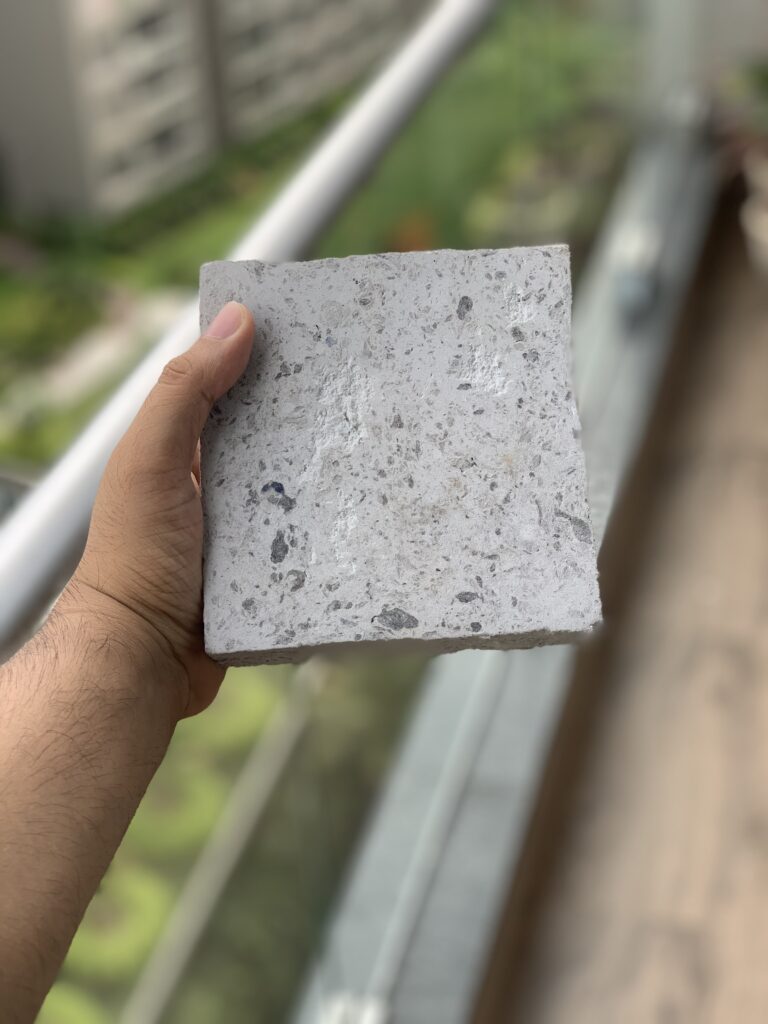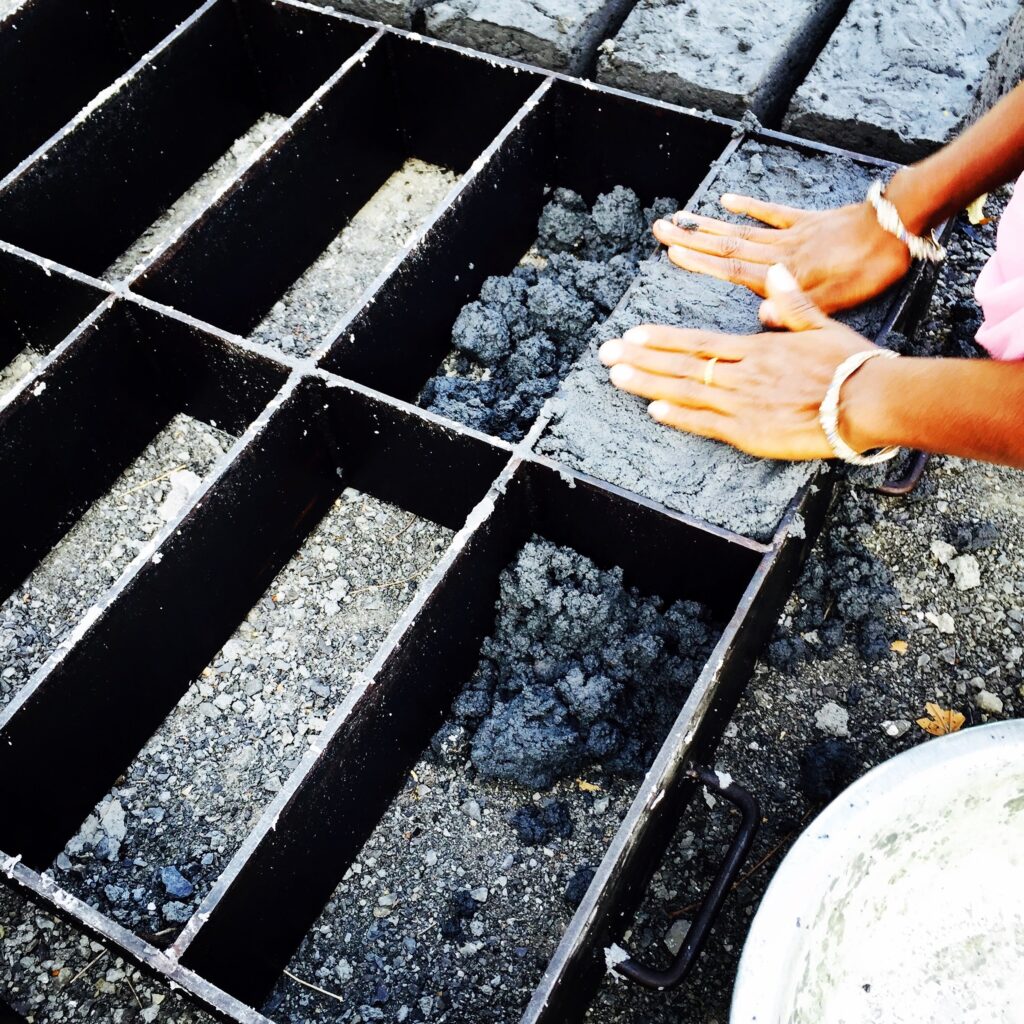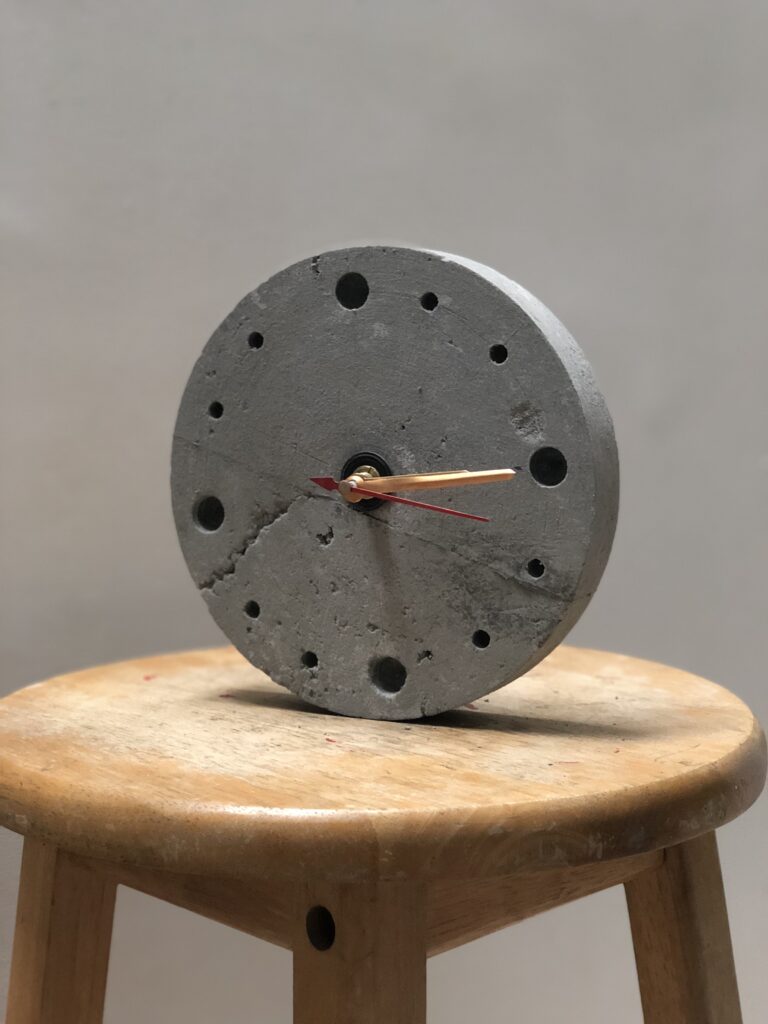Pollution, waste, garbage, trash, scrap – all these are no less than a threat for the earth and its habitats. This year, as the novel coronavirus has taken over the world, the plastic menace has also increased tenfold. As the world is fighting the virus, there is an increase in plastic waste in the form of PPE kits, masks and other sanitary wastes. We are staying locked in our homes while the land and water bodies are getting filled up with filth. To combat plastic menace created by pandemic, Binish Desai, Founder, Eco electric technologies who is also known as ‘The Recycle man of India’ has come with an innovative solution of making bricks by using discarded face mask and PPE kits material.

“You would have seen a lot of photographs circulating like, I saw an article which said that there are more masks in the ocean rather than jellyfish. And seeing all this PPE waste rising around, I was hit by an eco-anxiety which made me research away throughout it” stated Binish.
He calls this innovation as ‘Brick 2.0’ and began experimenting in April. These bricks include 52 per cent PPE + 45 per cent paper waste + 3 per cent binder. Binish makes sure that proper disinfection is done before starting the process.

To solve the biggest challenge of collecting this waste, special Eco-bins are designed. These eco-bins will be kept outside hospitals, hotels, malls, salons and other public places. These bins will not be opened until 72 hours as per the guidelines given by the Central Pollution Control Board. After that, the waste is soaked in disinfectant for 2 days and shredded and used in the bricks which are moulded and sun-dried. “Once the disinfection is done, it is just a non-woven material which is to be re-used. These bricks are better than the ones made earlier”, says Binish. They are however in comparison to the conventional ones- twice in size, half in prize and three times stronger, fire retardant and less water absorbing. Binish fore-sights that he would take this innovation in other countries too. There are many more experiments in pipeline like artificial marble and prefabricated houses.
Eco Electic Tech. group has done 178 eco-innovations using 67 different types of industrial waste and are researching for more. Binish believes, “Waste doesn’t exist in nature; it is generated by human consumption and nothing is useless in this world; what can be waste to you is someone’s asset.”

He was eleven when he got chewing gum stuck on his pants and removed it using a piece of paper which later hardened and became sturdy. This astonished the little boy and due to his inquisitiveness, he added few more material to it and developed a prototype of what now is a P- block brick. He patents it and by the age of sixteen started establishing his own company. The journey was not easy back then as it took a while for people to trust the little kid’s vision and missioN. Waste was a taboo back then but he believed that “waste is today’s gold and we just need correct ways to mine it.”
Little Binish was always disappointed by the negativity that came across the word ‘slum’. He said, “I wanted to change the way people looked over slums and so, I decided to make the world’s cheapest home.” He succeeded in making his dream come true as the bricks that he created are sold at Rs. 2.8/piece and made the world’s first home made out of paper waste.
Binish further said, “The P-blocks are made from paper waste, organic binders and some plant extracts. Hence, they are lightweight and its natural heat insulation keeps the interior cool. They are handmade and help in increasing employment and also results in faster construction as it is easy to carry. It also decreases carbon emission.” There are many more eco- products like- tiles, wood, architecture, acoustics, etc. all made from various types of industrial waste. With these P-blocks, Binish has made over 1,000 toilets in rural parts of India. He has recycled metric tonnes of waste and has reduced carbon emission also in a huge amount.
“I run a salon for industrial waste. Here instead of humans, we transform waste into eco-innovations”, proudly says Binish who also has a sector which goes by the name Eco Lights Studio wherein waste is turned into beautiful and luxurious articrafts. These products are made by groups of women and are handcrafted – each piece stands out on its own. Indeed waste is turned to treasure here.
During one of Binish’s journey, while making toilets in some rural area, he came across a woman with a worrying question. This woman asked him how she would be able to maintain the toilet that he has built while she has a mere source of income and children to look after. This made Binish take the initiative of employing women in the making of the bricks and other products.

“Instead of establishing one big factory, we run several small centres. Women working with us need not leave their homes and their daily routine; they can make the products right in their backyards. We give them the needed materials and this helps them to look after their homes and be employed at the same time”, says Binish. To paint the articrafts eco-friendly colours are used. Various lamps, clocks, earrings, etc. are made and each lamp is made up of 7kg waste so that it does not end up in landfills. It also prevents over 15 kg of carbon emission from entering the atmosphere. All these products are recyclable and for each item they sell, one tree is planted.
Last year, Binish also came up with eco- friendly Ganesha Idol. These idols were made from jewellery waste. They gave a special bag with these Ganesha idols in which the idols can be submerged and the water can be strained out. These bags can be sent back to the company and they would use the waste in making bricks or articrafts. They have also come up with a prototype of washable sanitary pads made from lint collected from waste clothes or any clothing industries. There is also something which is called a waste garden. Herein, the waste from the bathtub industry is used to grow turf grass. They can be put in huge lawns and also small spaces as well.
“There are 3 key lessons to keep in mind. Firstly to observe nature as it is best teacher to learn from. Second is a failure, it teaches us what should not be done. We need to learn to accept our failures and take it positively. And lastly, learn. Keep learning throughout life, no matter how much greater successes we achieve. These things will always help us and make us a better human”, says the eco-inventor Binish Desai.
To know more about Binish Desai’s innovations visit https://www.binishdesai.com/ or on Instagram https://www.instagram.com/binishdesai/?igshid=e0vrul3bjy40
Written by: Kosha Naik

